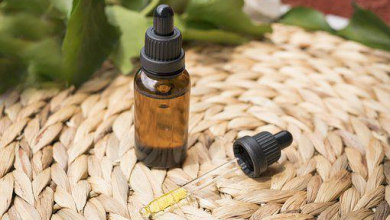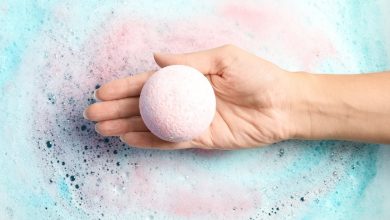What Are The Effects Of Shrooms On The Teen Brain?

In the past decades, shrooms or magic mushrooms have gained widespread popularity. They are those mushrooms that contain psilocybin, an agent known to induce hallucinations. When you consume psilocybin, your body converts it into psilocin, a chemical that could trigger several changes in the brain.
As a defense mechanism, around 180 mushroom species globally produce psilocybin. According to scientists, consuming these shrooms affect the appetite of predatory ants. As a result, they do not want to eat for a long time, preventing them from destroying all mushroom crops.
A teen human brain reacts to these shrooms differently. Some recent clinical trials suggest that psilocybin might carry the potential to deal with depression and anxiety. Both these are apparent issues among teens. So, shrooms might affect a teen’s brain and offer several positive and negative effects. Here is all you should know about the effects of shrooms on teens.
Table of Contents
Effects of Shrooms on Teen Brain
There are many ways consuming shrooms leaves an impression on a teen’s brain. Here are some things about it:
- Have you ever tried Marijuana? The National Institute on Drug Abuse believes that shrooms offer a similar sense of relaxation as Marijuana. Consuming it at a low dose gives a sense of comfort or ease.
- The institution believes that magic mushrooms act on the brain’s neural highways. These highways use serotonin to show effects. It is similar to the working of various hallucinogenic drugs, such as peyote and LSD.
- So, shrooms could affect a teen’s prefrontal cortex in the brain. This region regulates the analyzing process of abstract thinking and has an influential role in creating perception and mood.
In this way, shrooms affect the human brain. This process could lead to various positive effects.
They are:
-
It Might Create Hallucination
Yes, you read it right! One of the most discussed effects of shrooms is hallucination. Much anecdotal evidence shows that people hear colors and see sounds.
A study in 2014 reveals that the actions of psilocybin on communication networks across the brain are responsible for these hallucinating effects. Researchers administered 2 milligrams of this compound or placebo to understand brain activity differences. It revealed that the drug created a potent, new activity in those brain regions that usually do not interact in cross talks.
So, after consuming shrooms, you might also go through hallucinations that could last for 6 hours.
-
It Might Help with Depression
In the present era, depression is a widely seen issue among teens and adults. Researchers believe that the hallucinating properties of the shrooms could also support reducing depression.
David Nutt, a neuroscientist in Imperial College London, coined a study in 2012 on psilocybin. The study revealed an alteration in the activity pattern of the brain in people consuming this drug. Psilocybin activated or stimulated some areas of the brain and deactivated others for some time. It also showed a change in the brain area that regulates our sense of self.
Nutt believes that the wires in this brain area are strongly connected to depressed people. In Psychology Today, he mentions, “People who get into depressive thinking, their brains are overconnected”. So, magic mushrooms might loosen these connections and create new ones, making the teen’s brain relaxed and light.
-
It Might Reduce Anxiety
A study in New York University focused on the effects of psilocybin in cancer patients who suffer severe anxiety attacks. The researchers analyzed the impact of this drug on participants by either giving a placebo or a psilocybin pill.
Nick Fernandez, a participant of the NYU study, mentions to Aeon Magazine that the drug takes him on a different emotional journey. He began feeling a greater force than him. He said, “Something inside me snapped, and I realized all my anxieties, defenses, and insecurities weren’t something to worry about.”
Jeffrey Guss, a psychotherapist from NYU, believes that it is a step in the journey of healing. He also mentions that several participants felt a similar effect. So, there is a high chance that shrooms could help with anxiety in teens by affecting their brains.
-
It Might Support in Various Mental Illness
Instead of magic mushrooms, most studies focus on the active ingredient, which is psilocybin. This compound might work as a surgical intervention for many mental illnesses, such as anxiety and depression.
Two controlled clinical trials, one by Johns Hopkins University and another one by New York University researchers, show a positive result of psilocybin on patients going through stress and depression. The trials concluded that a single dose of the drug could act as a tool for overcoming anxiety and depression.
In the trial by Johns Hopkins University, 80% of the participants experienced a reduction in depression and anxiety symptoms. Researchers used a gold standard psychiatric evaluation to know the level of symptoms. On the other hand, the trial by NYU witnessed a decrease in anxiety and depression by 60 to 80%. These data show that magic mushrooms significantly affect a teen’s brain. These were good and desired impressions of shrooms on the teen’s brain. But they also have not-so-desirable effects.
Side-effects of Shrooms
Here are some of the undesirable effects of shrooms on teens’ brains from their actions.
-
It Might Make You Anxious
Ironically, shrooms might help you with anxiety in the long term but could also make you anxious. Generally, shrooms take 30-35 minutes to show effects. So, you might feel anxious from that period until its effect lasts.
In the NYU study, several participants complained about severe discomfort and anxiety for a few minutes to hours, mainly when they were on drugs. Once this anxiety attack settles, most of them report feeling better.
-
You Might Lose Sense for Sometimes
The National Institute on Drug Abuse states that you might feel like the time has stopped after consuming shrooms. Moreover, a high level of serotonin leads to pupil delusion.
All these effects are negligible and get healed at home. However, you should consult a professional if the problem persists for a long time.
Conclusion
The long-time question of the legality of magic mushrooms has stopped scientists from exploring this compound. It was a part of schedule 1 drugs. Thus, it was challenging for researchers to learn more about this compound. Fortunately, the available knowledge shows that the hallucination agent in mushrooms could benefit a teen’s brain in several ways. However, it is vital to check your dosage if you are a shroom-consuming teen.




